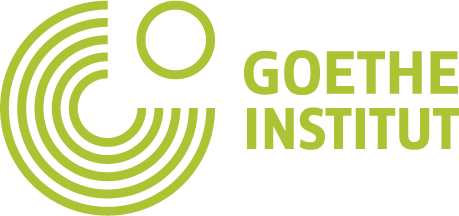Focusing on young people to revive the future of Italy
Placing young people at the centre of life projects in order to revive Italy – they are the resources that should be focused on in order to accelerate the green and digital transition. “Building networks for the school-work transition”- This is the appeal launched by StartNet, which presented the results and strategies of the first three years of the new programme during its online event on March 19th 2021.
Watch the entire event on our Youtube channel
StartNet, the network project that brings together stakeholders involved in the school-work transition (educational institutions, businesses and associations) has a European scope. Italy is one of the 17 partners of the 12 Member Countries of the project that provides “common solutions to common problems in different European Countries, using a reciprocal exchange and learning approach”, explained Jan Wilker, the project manager of StartNet Europe.
Promoting social cohesion in Europe
The project was initiated and made possible thanks to the Goethe-Institut and Stiftung Mercator, the German foundation that strives to strengthen social cohesion among European citizens by encouraging structured interventions of active youth participation starting with their personal development projects. “We are satisfied with the first three years of building networks and effective practices to guide young people and bring them closer to the world of work according to their aptitudes. It is not easy to create dialogue between the different stakeholders who need to commit to sharing experiences and resources, but we obtained results and we are renewing our support for the project”, declared Davide Bracci, project Manager of StartNet for the Mercator Foundation.
Watch the short video of Davide Bracci.
StartNet Italy: into the home straight
The numbers were significant even in the first years of activity in Italy, particularly in Puglia and Basilicata. “It took three years of planning to get the network off the ground in 2017 – analysing needs; involving workers on the ground; defining objectives and starting the initiatives. We applied a “collective impact” methodology, sharing objectives and measuring results through constant dialogue with the stakeholders”, explains Angelika Bartholomäi, project manager of StartNet Italy. The same assessment was shared by the representative of the Ministry of Education Fabrizio Proietti: “We never imagined that this network would have had such a large following. And yet, since its launch, 17 thousand students, 200 schools, 400 teachers and 90 businesses have joined orientation and transition projects”.
Sebastiano Leo, Councillor for Education, Training and Employment in the Puglia Region, is also satisfied: “I am pleased to embark on this adventure again with StartNet, particularly now that the pandemic has exacerbated matters in our regions. Together we have carried out solid orientation, integration and transition work and now all that is left is the home straight: integrating young people into the world of work with further involvement of regions and businesses”. The development strategies of the new three-year period (2021-2023) were presented by Ulrike Tietze, deputy director of the Goethe Institut Rom: “Now we are putting into practice the pilot projects of the first phase; we are establishing new partnerships; we are involving even more educational communities; and we are involving other regions and we are aiming at reducing NEETs and the gender gap in STEM subjects”.
How networks prioritise young people
Creating an ecosystem of actors working in synergy to accompany young people from school to the workplace was the focus of the round table. Professor Alessandro Rosina from the Università Cattolica di Milano, recommended that the mistakes that were made after the financial crisis in 2008 not be repeated. These made young people more vulnerable, and we saw a continuous increase in the number of NEETs in contrast to the European average. “Let’s help young people strengthen their ability to find their way around and choose a life project to get out of the labyrinth that will grant them access to the world of work. Europe is betting on them with the NextGeneration EU programme. We are hopping on this bandwagon and systematically contributing concrete actions to the network and including good local practices”.
Watch the short video of Alessandro Rosina.
In the same vein, Lucia Abbinante, director of the National Youth Agency, highlighted the value of European volunteering experiences with Erasmus+, which the Agency promotes regionally, encouraging initiatives between “kids that want to be the protagonists of a new beginning. Participating in these international programmes gives them the possibility to reflect on their life project and acquire cross-cutting skills that they say will have an impact on their transition to work”.
Watch the short video of Lucia Abbinante.
The pandemic has also affected the German orientation and apprenticeship system, as Michael Heister, director of the BIBB (Department of the Federal Institute for Vocational Training), explains: “We too have had a sharp decline in transition activities, because it is difficult to undergo practical training remotely. The way forward will be to invest in digital education and new technologies, such as virtual reality, in order to encourage experiences that are as realistic as possible”.
Watch the short video of Michael Heister.
Network Partners
StartNet’s network partners have great expectations for the continuation of its activities. These partners are committed to contributing their own perspectives and favouring synergies advocated during the event. Claudia Datena, director of the Basilicata Regional Educational Office for the Ministry of Education points to the exchange of good practices, experiences and mutual learning, hoping for an expansion in its institutional membership as was the case in Puglia. Rosa Scarcia, president of the GET School Network and director of the Marco Polo school in Bari, described the development of a few projects for teachers and young people to reduce the gender gap, using a systematic approach and involving families for better youth orientation. “We suffer from the stereotype of low female aptitude for STEM subjects and low gender representation in terms of role models. This is why we are organising meetings with women from the world of business, associations and trade unions, with a focus on Industry 4.0”. The response from industry was immediate. “I am proud to be a part of the StartNet project. I have believed in it since the very beginning. We have multinationals ready to play their part in steering the upcoming generations towards the skills that the industry needs”, said Cesare De Palma, coordinator of the technical table Education Confindustria Puglia.
Watch the short video of the StartNet partners.
Finally, Gianpietro Losapio, director of the national consortium for social innovation, Nova Onlus, presented the four-year orientation project OR.CO.digitsys, of which he is the coordinator. The project focuses on girls and boys and students in their final year of school who are about to go to university and supports them along their curricular and extra-curricular pathway. The aim is to strengthen their self-awareness, attitudes and potential, and focus on the long-term with regards to their life projects and their integration into the world of work. In this regard, the aim is to empower the main educational communities - also called "ecosystems" - inside and outside of school, with specific actions that support young people and their families. Due to the pandemic, the project introduced new tools and services, such as the web radio and a counselling service for families. “StartNet is a great way to meet people, offer services and learn. For me StartNet 2.0’s message is “Enough talking about young people – let them speak for themselves!”
Watch the short video of Gianpietro Losapio.
In conclusion, Joachim Bernauer, director of the Goethe Institut Italien, took up the challenge of making a qualitative leap: “We need to create even more systems between initiatives, projects and stakeholders, with a strong focus on peer-to-peer communication and young people’s networks”.







